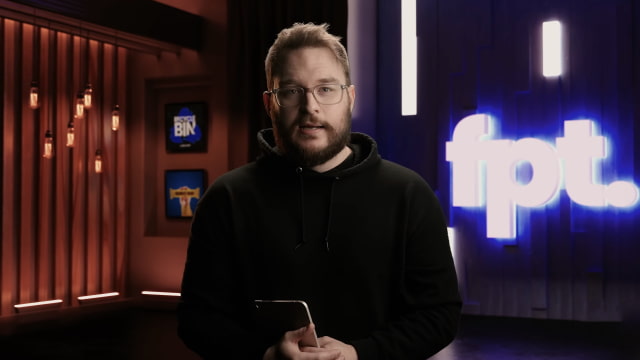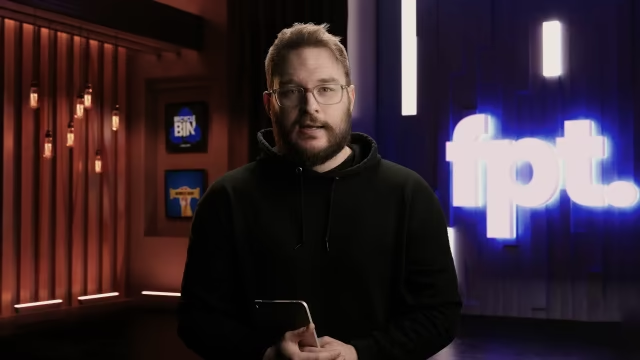Apple has filed a federal lawsuit against well-known leaker Jon Prosser and his associate Michael Ramacciotti, accusing them of working together to steal trade secrets from a development iPhone. The lawsuit, filed on July 17, 2025, outlines what Apple describes as a "coordinated scheme" to access and leak confidential details about a pre-release version of iOS 19—now known as iOS 26.
According to the complaint, the scheme revolved around a development iPhone issued to Apple software engineer Ethan Lipnik. Ramacciotti, a friend of Lipnik, allegedly used that relationship to gain access to the phone while staying at his Santa Clara apartment. Apple says Ramacciotti used location tracking to monitor when Lipnik would be away, obtained his passcode, and then broke into the device—despite knowing it was against company policy.
Once inside, Ramacciotti initiated a FaceTime call with Prosser to show him the unreleased operating system. Prosser allegedly recorded the screen during the call, capturing key design elements, animations, and app interfaces. According to Apple, he later shared that footage with at least one person who recognized Lipnik's apartment in the background. The recordings were also used in multiple videos posted to Prosser's YouTube channel, Front Page Tech, which we covered in March and again in April. At the time, some questioned the accuracy of the leaks, including Bloomberg's Mark Gurman, who said the mockups missed the mark.
Apple's investigation began after receiving an anonymous tip on April 4, 2025, which named Lipnik as the potential source. The company says it terminated Lipnik's employment for violating internal policies that govern the handling of development hardware and unreleased software. Notably, Apple claims Lipnik never reported the breach himself and only learned about it after someone recognized his apartment in one of Prosser's videos.
In an audio message later provided to Apple, Ramacciotti admitted to accessing the device, revealing that Prosser had proposed the scheme and offered him compensation. Apple says the plan was to help Prosser obtain trade secrets he could monetize through his channel. Ramacciotti acknowledged the leak could jeopardize Lipnik's career but proceeded anyway.
The complaint also references statements made by Prosser in his own videos, where he admits the information shown was "the real deal" and explains Apple's internal efforts to compartmentalize iOS builds to prevent leaks—comments Apple cites as evidence he knew the material was confidential. While Prosser claimed he recreated what he saw to protect sources, Apple says he directly recorded and disseminated trade secrets.
Filed in the U.S. District Court for the Northern District of California, the lawsuit includes two claims: misappropriation of trade secrets under the Defend Trade Secrets Act and violation of the Computer Fraud and Abuse Act. Apple is seeking injunctive relief to prevent further leaks, punitive and compensatory damages, recovery of legal fees, and the return or destruction of any confidential information still in the defendants' possession.
Apple warns that the development iPhone used in the breach may have contained additional unreleased features that have yet to be exposed, posing an ongoing risk. The company says it has already spent significant resources investigating the incident and believes the defendants' conduct caused serious competitive harm.
Prosser Responds
Jon Prosser has responded to the lawsuit, disputing Apple's claims. In a post on X, he wrote:
"For the record: This is not how the situation played out on my end. Luckily have receipts for that.
I did not 'plot' to access anyone's phone. I did not have any passwords. I was unaware of how the information was obtained.
Looking forward to speaking with Apple on this."
We'll be following the case as it develops. Check out the full complaint posted to Scribd via MacRumors. Make sure to download the iClarified app or follow iClarified on Twitter, Facebook, YouTube, and RSS for more updates.


According to the complaint, the scheme revolved around a development iPhone issued to Apple software engineer Ethan Lipnik. Ramacciotti, a friend of Lipnik, allegedly used that relationship to gain access to the phone while staying at his Santa Clara apartment. Apple says Ramacciotti used location tracking to monitor when Lipnik would be away, obtained his passcode, and then broke into the device—despite knowing it was against company policy.
Once inside, Ramacciotti initiated a FaceTime call with Prosser to show him the unreleased operating system. Prosser allegedly recorded the screen during the call, capturing key design elements, animations, and app interfaces. According to Apple, he later shared that footage with at least one person who recognized Lipnik's apartment in the background. The recordings were also used in multiple videos posted to Prosser's YouTube channel, Front Page Tech, which we covered in March and again in April. At the time, some questioned the accuracy of the leaks, including Bloomberg's Mark Gurman, who said the mockups missed the mark.
Apple's investigation began after receiving an anonymous tip on April 4, 2025, which named Lipnik as the potential source. The company says it terminated Lipnik's employment for violating internal policies that govern the handling of development hardware and unreleased software. Notably, Apple claims Lipnik never reported the breach himself and only learned about it after someone recognized his apartment in one of Prosser's videos.
In an audio message later provided to Apple, Ramacciotti admitted to accessing the device, revealing that Prosser had proposed the scheme and offered him compensation. Apple says the plan was to help Prosser obtain trade secrets he could monetize through his channel. Ramacciotti acknowledged the leak could jeopardize Lipnik's career but proceeded anyway.
The complaint also references statements made by Prosser in his own videos, where he admits the information shown was "the real deal" and explains Apple's internal efforts to compartmentalize iOS builds to prevent leaks—comments Apple cites as evidence he knew the material was confidential. While Prosser claimed he recreated what he saw to protect sources, Apple says he directly recorded and disseminated trade secrets.
Filed in the U.S. District Court for the Northern District of California, the lawsuit includes two claims: misappropriation of trade secrets under the Defend Trade Secrets Act and violation of the Computer Fraud and Abuse Act. Apple is seeking injunctive relief to prevent further leaks, punitive and compensatory damages, recovery of legal fees, and the return or destruction of any confidential information still in the defendants' possession.
Apple warns that the development iPhone used in the breach may have contained additional unreleased features that have yet to be exposed, posing an ongoing risk. The company says it has already spent significant resources investigating the incident and believes the defendants' conduct caused serious competitive harm.
Prosser Responds
Jon Prosser has responded to the lawsuit, disputing Apple's claims. In a post on X, he wrote:
"For the record: This is not how the situation played out on my end. Luckily have receipts for that.
I did not 'plot' to access anyone's phone. I did not have any passwords. I was unaware of how the information was obtained.
Looking forward to speaking with Apple on this."
We'll be following the case as it develops. Check out the full complaint posted to Scribd via MacRumors. Make sure to download the iClarified app or follow iClarified on Twitter, Facebook, YouTube, and RSS for more updates.



